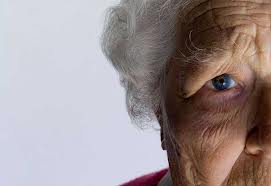 I have written about Alzheimer’s disease…a lot, its warning signs and caregiving probably more than any other topic. Even in this time of COVID, I still come back to it. This time it is about the warning sign that may be COVID causing confusion instead of Alzheimer’s disease. If you are a caregiver to an older loved one, you probably have become very astute about listening for signs of the onset of this virus: changes in taste or smell, persistent cough, fever, all the usual suspects.
I have written about Alzheimer’s disease…a lot, its warning signs and caregiving probably more than any other topic. Even in this time of COVID, I still come back to it. This time it is about the warning sign that may be COVID causing confusion instead of Alzheimer’s disease. If you are a caregiver to an older loved one, you probably have become very astute about listening for signs of the onset of this virus: changes in taste or smell, persistent cough, fever, all the usual suspects.
A study recently published by health care providers at Northwestern University Health System has reported that a disproportionate share of 65+ year old COVID patients also had what they refer to as “altered mental function.” In short, these COVID patients may be confused or have some difficulties performing some activities of daily living. This may not be surprising, because delirium also has been a harbinger of infections. And what is COVID, except a life-threatening infection?
The doctors who authored this study explain that this confusion is a result of inflammation that has spread to the brain causing encephalopathy. It may happen in the disease’s early stages, so this another warning sign for caregivers, and it is a serious sign, because the COVID has spread to the brain. And even patients who do not show these signs prior to hospitalization may develop the cerebral inflammation once they are in the hospital. And encephalopathy makes for a poor outcome in the course of COVID’s infection. Patients with encephalopathy stayed three times as long in the hospital and were seven times as likely to die from COVID.
It’s always important to watch for any changes in our older loved ones as potential alerts for COVID, but now delirium is also one of those signs. So, how does one know? Here are some warning signs according to the experts:
- Misplacing the keys…Misplacing the keys or other “forgetfulness” may be signs of potential delirium; get your loved one checked for COVID.
- Losing longstanding skills…The loved one who was always good at math forgetting how to multiply should be concerning.
- Just plain confusion…look for smaller signs as basic as their steps begin to more resemble a shuffle as this may be a sign of a more fundamental uncertainty.
- Changes in personality…The loved one who used to be the animated conversationalist, but now is more subdued may be responding to their own confusion in trying to follow what everyone is saying.
- Agitation…in a person who was once a cheery individual a short temper also can be a sign of changing mental abilities.
Caregivers should be alert to these, but not jump to the wrong conclusions. Take a temperature, offer hydration, ask about taste or smell capacity, and all the rest. So, raise your awareness, and then be prepared to raise your hand.
Charlotte Bishop is an Aging Life Care Advisor, Geriatric Care Manager and founder of Creative Care Management, certified professionals who are geriatric advocates, resources, counselors and friends to older adults and their families in metropolitan Chicago. She also is the co-author of How Do I Know You? A Caregiver’s Lifesaver for Dealing with Dementia.





